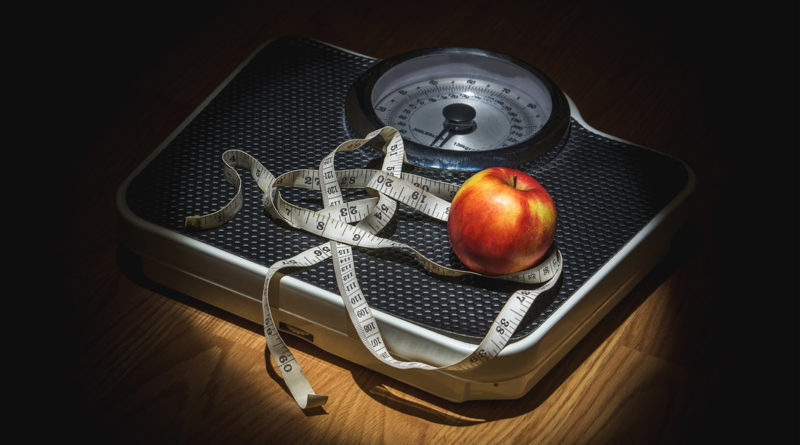Ayurveda’s solution for the Obesity Crisis
Next time you are looking through some old photo albums from your parents or their parent’s generation start to notice what people look like. When I was with my parents over the holiday’s I realized there was something odd. I noticed that everyone in the pictures is unusually thin. Men aged 40-45 in the 60’s average weight was 169 pounds, by the year 2000 that was 196, what do you think it is today?1
In 2010 over 69 percent of American adults had become overweight or obese. This phenomenon is not exclusive to the Western world, but a similar trend can be seen worldwide. The trend began in the 70’s and really hit its stride in between 1980 and 2008 as it doubled. Today it is estimated that there are 1.4 billion adults who are overweight and the damage to human health is significant. Obesity related illness kills more people than malnutrition and infectious diseases. Managing the chronic diseases associated with obesity is expensive. Over the next 20 years the costs of obesity to the global economy are projected to be at least 30 trillion dollars.
Ayurveda looks at patterns and it is clear that there is a pattern of weight gain across the world, so that leads us to look at what could be causing this. A lot has changed over the last ten years in our understanding of weight gain and the current understanding is in alignment with the Ayurvedic approach that has been working for 5,000 years. Let’s look at the new research and what it means for you.
Calories, Willpower and Genes
Scientists have long held that this trinity is the determining factor of maintaining a healthy weight. If you can manage your intake of calories, cultivate your willpower and you have good genes then you won’t have any problems. Wait a minute, weight gain is on the rise so what is not working about this approach?
The calorie theory is simple. Weight is gained when you eat more calories than you burn. That may be true for healthy people under scientific scrutiny, but for some of us, oxygen makes us gain weight and last I checked there are no calories in air. So problem solved, right, we are eating more than any time in our previous history. Well, yes, but why are we eating more than ever before? Access to food, no willpower, or could it be chronic stress?
Let’s look at willpower as whether we decide to eat or not, is based on willpower. Or is it? Regardless of what cutting edge behavioral psychologists and neuroscientists are finding, most of us still believe that adults make conscious choices about what to eat and if they lack willpower or don’t try hard enough, they will fail in their diet. Instead of looking at adults’ irrational patterns of behavior, I would like to ask you what about infants and animals? Do they also have willpower? If not, we would anticipate that willpower is exclusive to adults and it is only adults who are having a crisis of obesity. The numbers tell a different story.
Obesity rates for infants is increasing rapidly and has been for the last decade. There have been no changes in infant formula over this same time period. Animals such as macaques, chimpanzees, vervets, marmosets, lab rats and mice, feral rats, and domestic dogs and cats studied by David Alison had their weight increase by as much as 37% every decade. Even animals whose diets and activity levels are controlled in zoos found this same increase. So while willpower may play a part in weight gain, there appears to be a much more insidious problem at play.
If our calories, willpower and genes have not changed much and yet we continue to gain weight at an alarming rate, what has changed over the same timeframe?
If our calories, willpower and genes have not changed much and yet we continue to gain weight at an alarming rate, what has changed over the same timeframe? Most researchers can agree that our world is more toxic, faster paced and more uncertain. Our lives are spent indoors with less sunlight, less friends and with less time to sleep. Our diet has more sugar, less fiber, more chemicals, and we are taking more medications. We spend less time in sunlight. We sleep less. We feel less certain about our financial futures, and we have fewer friends.
Then the question is what system of the body is being affected the most by these changes, and how does that system relate to our ability to lose or maintain weight? The answer lies in the endocrine system. This system manages our hormones and creates rhythms in the body to manage our physiology. Every one of these factors strongly disrupts endocrine function and especially the function of the adrenal glands. The adrenals and their respective hormones developed as the body and minds primary response to danger and scarcity which were the primary threats of our Paleolithic ancestors. It is the adrenals that quickly assess whether the stress you are in contact with will require energy to be sent to the muscles to fight, or to the belly to store. This biological protection mechanism has served us well and it is the reason we are here today, but very few of us are fighting tigers and experiencing food shortages. If you are in a food shortage than you will store fat around your organs so that you can survive a long and cold winter. It is now being confirmed scientifically that the triggers of modern life switch the body into survival mode and that is why we are storing fat faster than any previous generation.
Ayurveda made its mark on our ancient ancestors by providing tools to eliminate the detrimental effects of the survival mode thousands of years ago. These tools are especially relevant to our modern life.
Rest. Reset and repair
In Ayurveda this is called rasayana or rejuvenation and is the act of turning your gratitude inward by providing yourself deep nourishment. Rejuvenation is a system to strengthen and tone your physical, mental, and emotional spheres. The objective is to add a sense of groundedness, contentment, and joy to your life. Although there are many foods and herbs that can benefit you in resetting your body away from survival, incorporating more calming, nurturing practices that set a tone of health, relaxation, and self-love into your days – particularly your mornings – is part of the rejuvenation process.
- Abhyanga (Ayurvedic Oil Massage) – Each morning, before a shower or bath, massage about ¼ cup oil into the skin. This practice calms the nervous system and reduces the adrenals secretion of stress fighting hormones.
- Oil Your Scalp & Feet Before Sleep – Before bed, apply some warm oil to your scalp and to the soles of your feet. This practice supports sound sleep which helps reset your hormones.
- Nasya – Each morning apply 3-5 drops of Nasya Oil into each nostril. This practice helps to support mental clarity and foster the unfolding of awareness which can bring you out of the survival response.
- Meditation and/or Reflective Time – Any quiet, contemplative practice is powerfully supportive of reformatting the hormones towards health.
- Bedtime – Have the same bedtime and same awakening time seven days per week.
- Caffeine – No more caffeine by early afternoon. Drinking caffeine later in the day will interfere with a healthy sleep cycle, and require caffeine in the morning to get going.
- Flashing rectangles – Shut your electronic devices and TV down at least one hour before bed.
- Stop working at night – You are not getting ahead you are disrupting the quality of your sleep.
Although there are many more practices that can be incorporated in order to bring you out of the survival mode and lead to waist loss, these practices will support the state of mind necessary to make the dietary changes that will support your goals of weight loss. First recognize that most of what you have learned about weight loss is wrong. Fix your body’s clock. The primary problem is that the rhythm of thriving of burning fat, generating energy, feeling secure and safe is not working and you are storing fat because the body believes there is a famine. Timing your food and lifestyle routines will reset your body to thrive instead of being stuck in the survival mode. Timing is everything and in order to tune in, follow the practices above and then get ready to create a rhythm in your life that supports your optimal weight.




